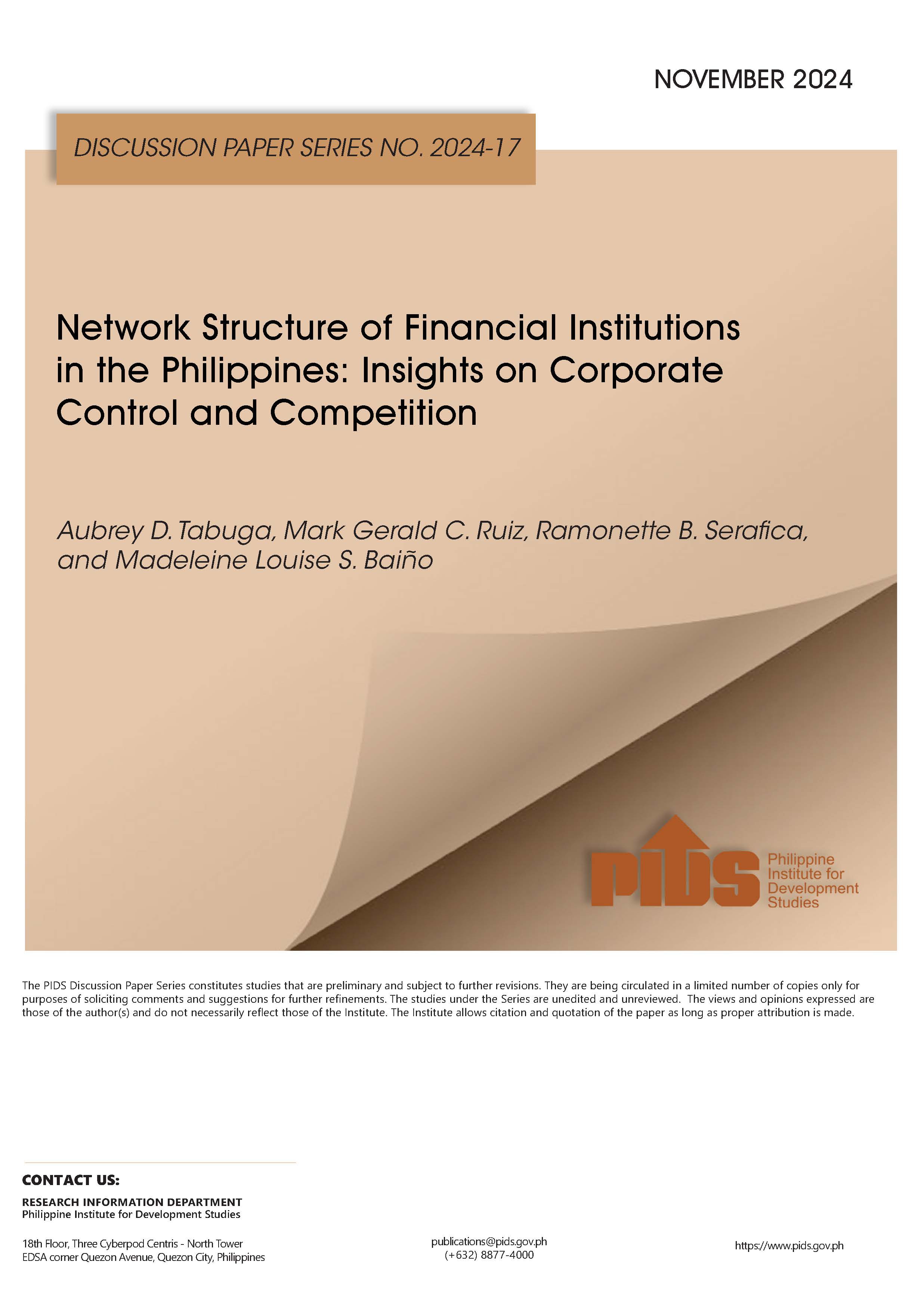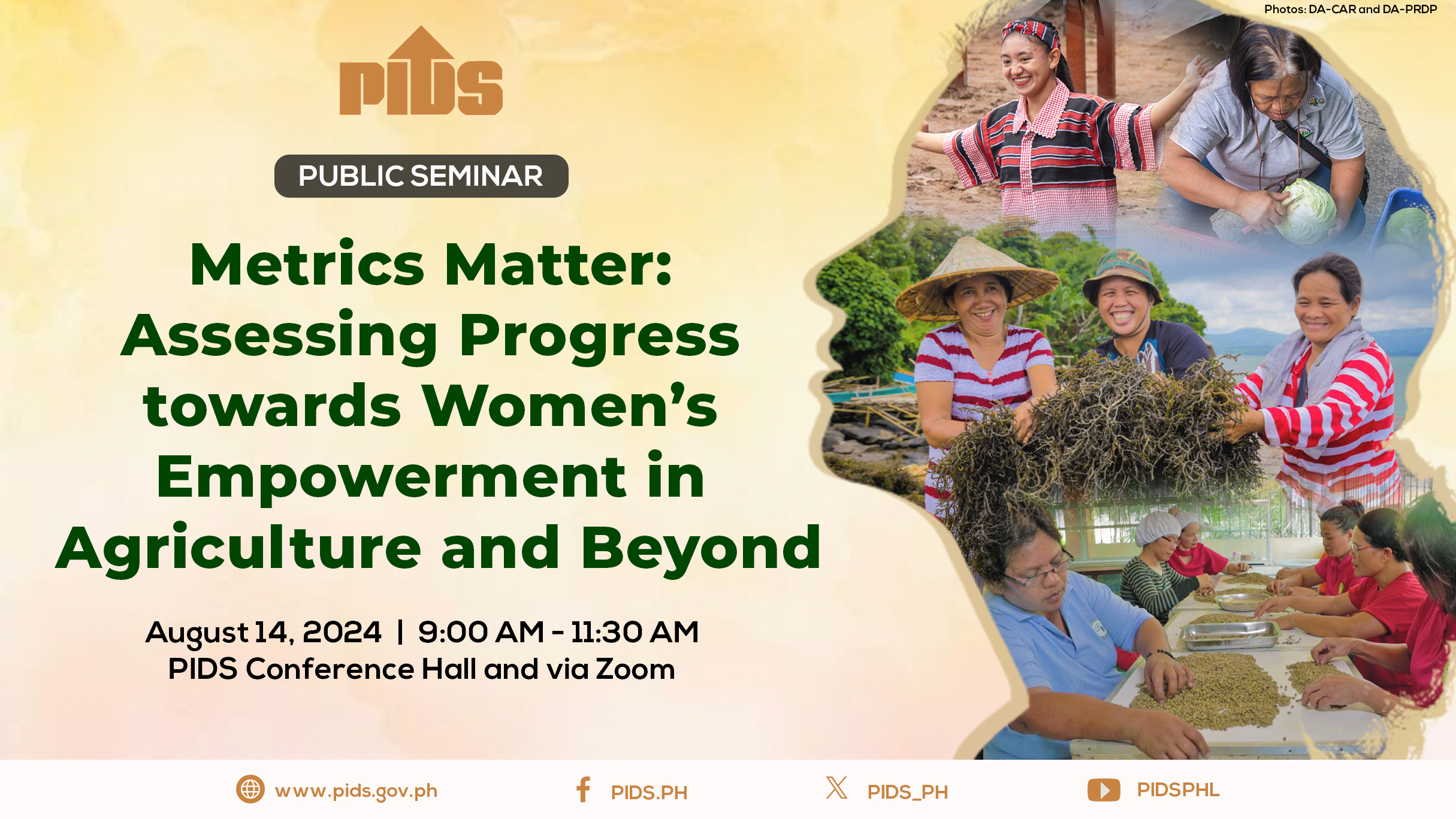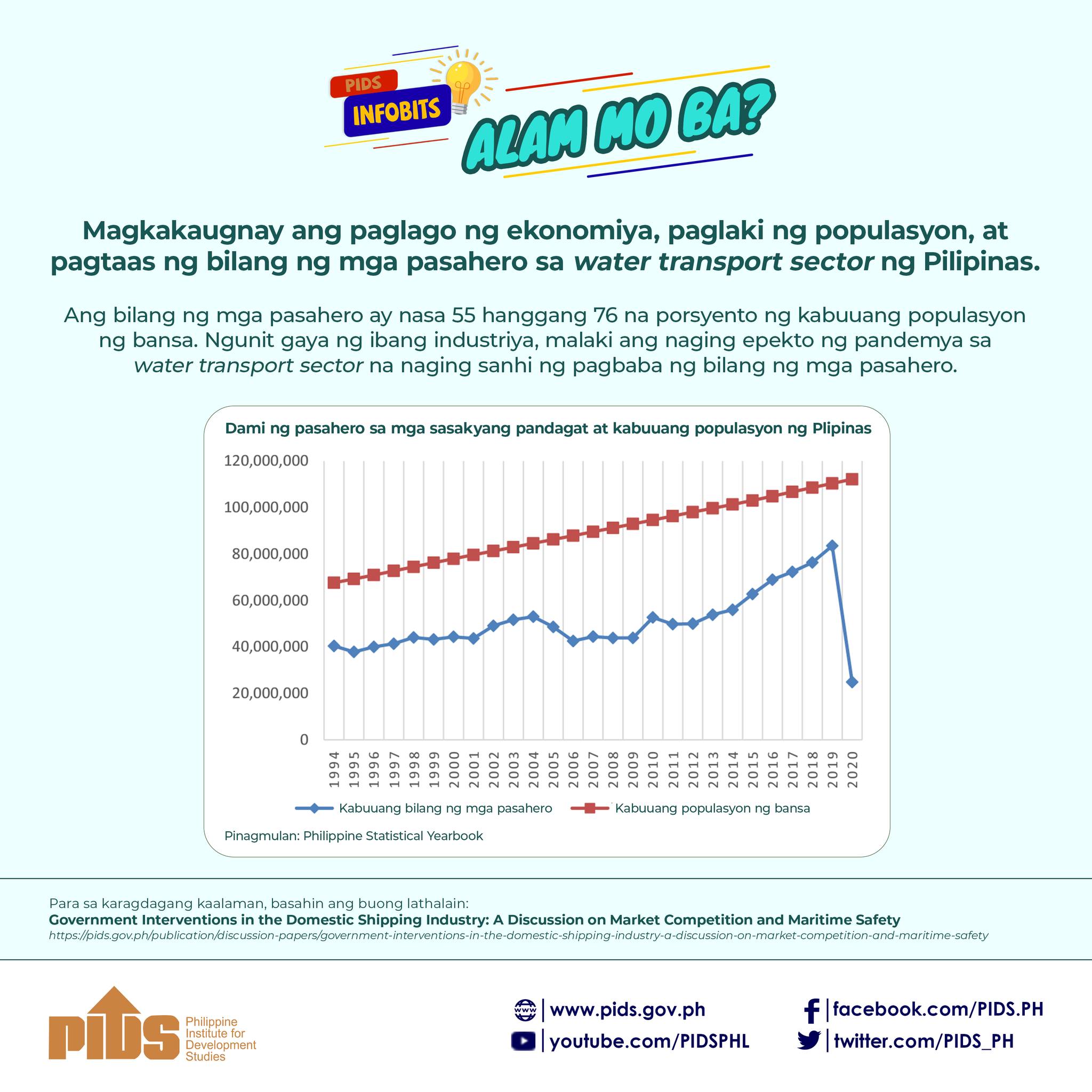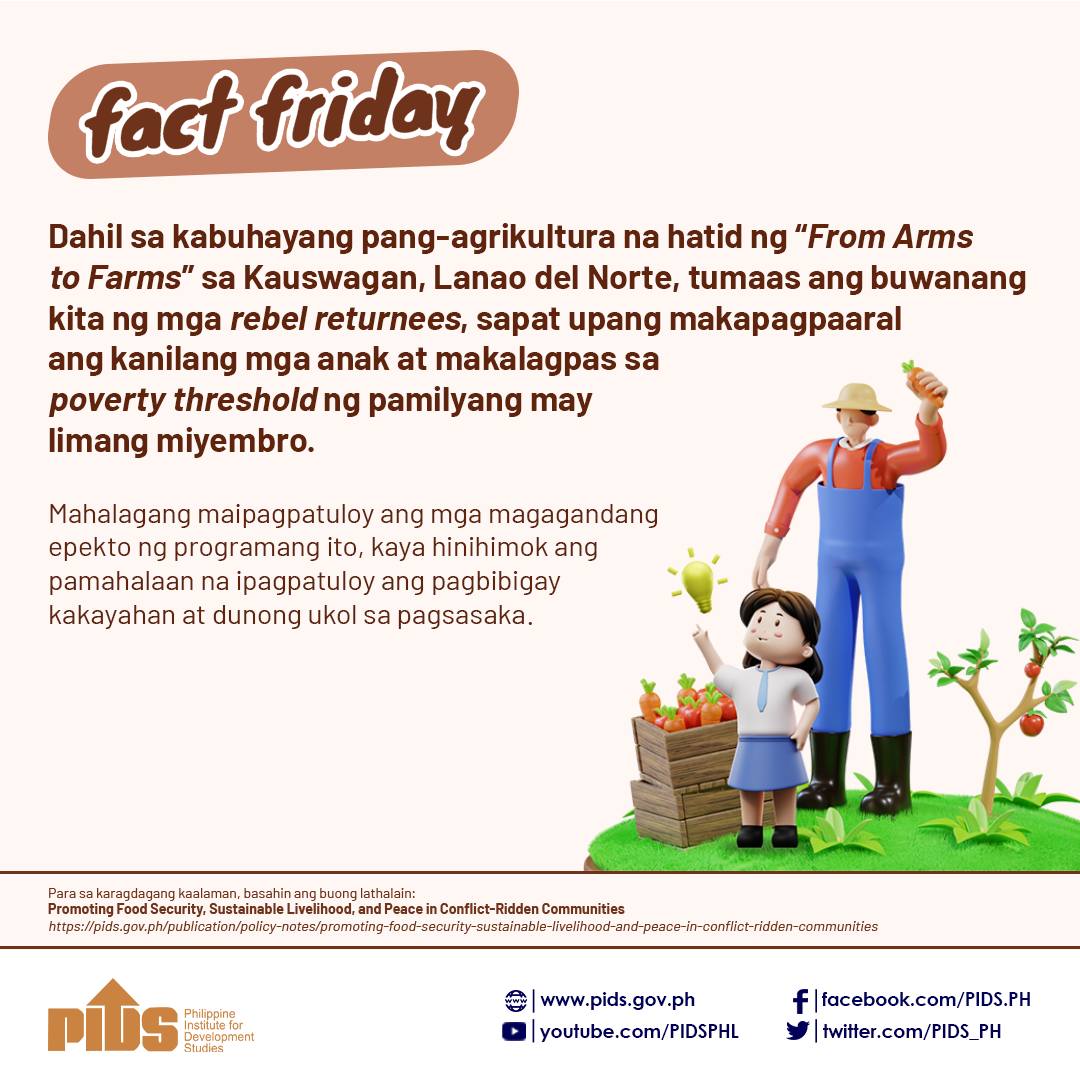A free trade agreement (FTA) with the European Union (EU) will have a potential positive impact on the Philippine agricultural sector, but the gains are not likely to be that substantial, according to the Philippine Institute of Development Studies (PIDS).
In a recent study, PIDS said the overall impact of a Philippine-EU FTA, which calls for the removal of both tariff and non-tariff barriers, could lead to just a slight increase in output for most agricultural commodities.
The study authors Roehlano Briones and Ivory Myka Galang explained that potential agricultural trade from an FTA will likely be small owing to the minimal volume of initial trade with EU. They pointed out that exports to the EU account for just about a quarter of Philippine overall agricultural exports.
In addition, the vast distance entails high transportation costs for local exporters. This means agricultural products that can be economically shipped from the Philippines to EU, and vice-versa, will likely be in processed form.
On the export side, the largest gains are projected for producers of seaweeds and sugarcane. Increased access to EU markets is favorable for Filipino exporters of seaweeds, other fiber crops, tobacco leaf, forestry, ornamental plants, raw coffee, abaca, and cocoa, the report said.
On the import side, nearly all sub-sectors are seen to receive slightly more imports. Standing to lose are local producers of cattle, raw rubber, chicken, and hogs. These products are projected to see a decline in output with the substantial rise in imports from EU. Cattle imports are seen to increase by 3.3%, chicken by 4.62%, and hog by 4.69%.
Rubber will also undergo output contraction entirely due to resource re-allocation within the domestic economy.
The study also addressed fears about the negative repercussions of a Philippine-EU FTA on the poor, saying these are unfounded. Poverty incidence especially in rural areas will decline, with those who belong to households below the poverty threshold getting the most benefits.
The agriculture sector accounts for one-eighth of economic output and has exhibited the lowest growth compared with industry and services. However, it remains an important sector for inclusive growth.
More than a third of the labor force depends on agriculture for employment, and poverty levels are high. The study noted that poverty incidence among agricultural households in 2009 was 40% as against only 19% among non-agricultural households.
The overall impact of Philippines-EU FTA in the agricultural sector is positive but limited, the study said. "It would seem that expectations of large benefits from a Philippines-EU FTA will not be found in agriculture, but elsewhere.”
The authors said: "Conversely, the agricultural sector does not face significant harm from a Philippines-EU FTA, even one involving sensitive products.”
The relaxation of trade barriers even for sensitive products is warranted because "not only would consumers gain but such a negotiation stance may serve as a powerful bargaining chip for gaining concessions on other areas, the study added.












